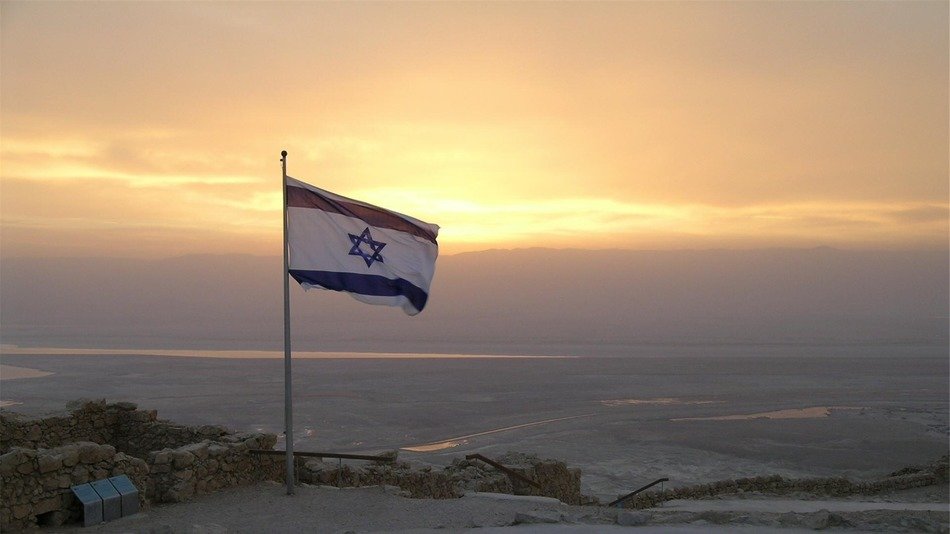Opinion | Abraham Accords are not a betrayal of Palestinians


For the first time since 1994, several Arab countries have fully normalized their diplomatic relations with Israel.
This wave of normalization started with the Abraham Accords, a joint statement between the United States, United Arab Emirates and Israel that marked the beginning of normalized diplomatic relations between the UAE and Israel. Over the next few years, analysts expect Sudan, Bahrain and the UAE to exchange embassies with Israel, form new social and economic ties and even establish direct flights. Despite this improvement, some Palestinian leaders have claimed that “several … Arab countries have betrayed the Palestinian people and the Palestinian issue.”
Fahmi al-Za’areer — an official from Fatah, an organization led by Mahmoud Abbas, the current president of the Palestinian National Authority, claimed that Arab countries are no longer “defending and helping the Palestinians in their struggle against Israel.”
al-Za’areer’s choice of words to blame the plight of the Palestinians on Israel and cast the normalization of diplomatic relations with Israel as “betrayal” is ironic. It is an attempt at deflection, meant to draw attention away from decades of corruption and repression under the PNA and an attempt to deny Israel the recognition it deserves as a full member of the Middle Eastern community.
The Palestinian leadership may disapprove of Arab-Israeli diplomatic relations, but Israel should not be ostracized by the international community for the Palestinian leadership’s own refusal to make peace. Israel has attempted to make peace multiple times, but Palestinian leaders have crushed every attempt.
Historically, Arab countries have rejected normalized diplomatic relations with Israel ever since the Khartoum Resolution in 1967. This resolution famously touted the “three no’s” — “no peace with Israel, no recognition of Israel, no negotiations with it.”
Despite this resolution, Israel managed to make peace — if a cold one — with its neighbors over the years, first with Egypt in 1979, and then with Jordan in 1994.
Now, more Arab countries are starting to realize that peace between Israel and its Muslim neighbors benefits everybody in the Middle East. In fact, the normalization deals between the UAE, Bahrain and Israel were not condemned by the Arab League — a loose regional confederation of 22 Arab countries — which is a dramatic diplomatic development. If other Arab countries normalize ties with Israel, it would reshape the diplomatic landscape of the region. No longer would Israel be the pariah state surrounded by enemies.
Hamas is an Islamic terrorist group that has vowed to never make peace with Israel, as it seeks to destroy the Jewish state. The organization continues to fire rockets at Israel, and it’s done so for years, long before talks of normalization ever occurred. Hamas’ charter states that “The Day of Judgment will not come about until Moslems fight Jews and kill them. Then, the Jews will hide behind rocks and trees, and the rocks and trees will cry out: ‘O Moslem, there is a Jew hiding behind me, come and kill him.’”
The PNA in the West Bank continues to give millions of dollars to families of terrorists, and Yasser Arafat, the former leader of the PNA, launched the Second Intifada — a Palestinian uprising against Israel — soon after Israel offered to give up most of the West Bank and all of Gaza to an independent Palestinian state in 2000.
The peace deals that Israel proposed to Arafat in 2000 would have involved uprooting tens of thousands of settlers from the West Bank, yet the Palestinian leadership still rejected it. Even though Palestinians would have received 97% of the West Bank and all of Gaza, along with a capital in east Jerusalem, this was seemingly not enough. The Palestinian leadership is not willing to negotiate with Israel, and during the peace negotiations in 2000, Arafat never proposed any counter-proposals to the Israeli and American diplomats, showing his unwillingness to find a real solution. The PNA has yet to accept that Israel is a Jewish state, and during the negotiations, Arafat attempted to deny Jews’ historic and religious connection to the Western Wall, the remnants of the Second Temple in Jerusalem.
The current PNA leader, Abbas, has refused to negotiate with Israel, and he’s done little to benefit the Palestinian people. The PNA has extensive corruption issues, and it does not grant Palestinians the same civil and political liberties afforded to all citizens of Israel.
No presidential election has occurred in the West Bank since 2005, despite Abbas’ four-year term ending in 2009. Along with this, Christians, members of the LGBTQ+ community and dissidents have all been jailed and discriminated against by the Palestinian National Authority. In Israel, the only legal distinction between Jews and Arabs is that Jews are required to serve in the military. Arabs vote in the Israeli parliament and are involved in Israeli society at all levels.
The unwillingness of the PNA to consider peace with Israel is reflected in its schools’ educational materials. In 2019, the PNA eliminated all references to Israel, the Jewish people and peace between Israel and Palestine from its textbooks for the 2019-20 school year.
Ultimately, peace between Israel and its Muslim neighbors is about Israel’s security, not about pleasing the Palestinian political leadership that has never shown any willingness to engage in good-faith negotiations. Israel must be responsible for the safety of its people and its own interests.
Palestinians may very well be upset that no meaningful peace deal has come to fruition between Israelis and Palestinians. But that lack of peace is clearly the fault of the Palestinians’ government, and they no longer hold the veto power they once had over recognition of Israel as a legitimate member of the family of Middle Eastern nations. Peace will not come when Palestinians are represented by leaders who are clearly more interested in destroying Israel than building a state of their own.
Josh Beylinson writes primarily about foreign policy and domestic politics. He is also a Fellow for CAMERA on campus. Contact him at jab515@pitt.edu.
Recent Posts
Photos: Pitt Small Jazz Ensemble
Pitt Small Jazz Ensemble performed in the Bellefield Hall Auditorium on Tuesday, April 15. [gallery…
Photos: Pitt Volleyball vs Ohio State
Pitt Volleyball defeats Ohio State University 3-0 at the Fitzgerald Field House on Saturday April…
SGB addresses concerns about ICE presence on campus, hears SJP lawsuit against administration, approves governing code bill
At its weekly meeting on Tuesday at Nordy’s Place, Student Government Board heard concerns about…
ACLU of Pennsylvania sues Pitt over SJP suspension
The ACLU of Pennsylvania filed a federal civil lawsuit against the University of Pittsburgh and…
Marquan Pope: The ultimate shark
One of the most remarkable things about sharks is that an injury doesn’t deter them.…
Who Asked? // Do we really get a summer vacation?
This installment of Who Asked? by staff writer Brynn Murawski mourns the seemingly impossible perfect…


